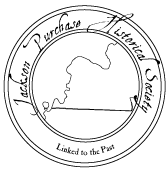Elementary school children know that Christopher Columbus discovered the Americas in 1492, but not when the day to celebrate this event was set aside, thus giving them a holiday from school. A day to commemorate this event wasn’t made a U.S. national holiday until 1937 after intense lobbying by the Knights of Columbus, a Catholic fraternal benefits organization. In 1971, the celebratory day was set as the second Monday in October. This day is also celebrated in Spain, the Bahamas, Costa Rica and other areas of the Americas under similar names and in Canada the U.S. holiday falls on the same day as the Canadian Thanksgiving.
In many cities of the U.S. this day has become a day of celebrating Italian-American and Catholic heritage because Christopher Columbus was an Italian-born, Catholic, explorer sponsored by the Spanish royalty, King Ferdinand and Queen Isabella.
In the 19th century, anti-immigrant groups rejected the holiday because of its association with Catholicism and most recently Native Americans and other groups protest celebrating this holiday because Columbus’s discovery led, howbeit indirectly, to the colonization of the Americas which resulted in death by European diseases and warfare and the institution of slavery of native peoples.
Regardless of how history treats Columbus and his discovery, it cannot be argued that his voyages to the Americans did light a fire in Old World imaginations which began 150 years of European exploration and colonizations in the Americas.
(This posting created from the following resources: What Every American Should Know About American History, 200 Events that Shaped the Nation, by Dr. Alan Axelrod and Charles Phillips, 1992; Internet sources at http://en.wikipedia.org and www.history/com.)
